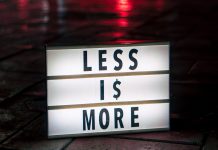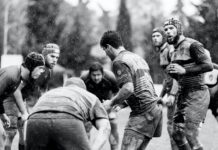It all depends… What are you selling and to whom?
What should I be looking for in a good sales recruit?
This is a vexing question for many sales and business leaders.
And some of the answers we still hear aren’t very helpful either.
‘They must be hunters.’
‘They need to be hungry.’
‘They’ve got to be able to close deals.’
‘They must have a mortgage and family so they are ‘motivated’ to sell more.’
‘They must have industry experience.’
Notice anything familiar about most of these answers?
They are all stuck in the ‘aggressive, self-serving, desperate approach to selling’ paradigm which is not what good selling actually is – at least the selling practices and qualities we know to be suitable, good for business, salespeople and customers.
The industry experience one can be an issue, too. Often times when we recruit industry experience we can often get the same people, with the same old ideas and the same old results. So be aware about industry experience, as it’s not always the best path to follow.
These tired old tropes keep us from hiring the right sales talent our businesses really need.
So we encourage you to not fall into this simplistic mind trap because it won’t end well for you, your customers, your salespeople, or your business and its reputation.
So what should we really be looking for in a good sales recruit?
It all depends… What are you selling and to whom?
- Are you selling B2B (business to business) or B2C (business to consumer)?
- Are you selling unique solutions or specialised/customised products or services?
- Are you selling simple off-the-shelf products or services?
The higher the complexity of what you are selling, the more skilful and knowledgeable your salespeople will need to be when it comes to customer engagement.
At the other end, if what you’re selling is simple and off-the-shelf, then you will more than likely need to have an online presence that is automated and underpinned by a human service component that helps sort out any issues as they arise.
Either way, you need to determine what type of salesperson and/or approach you need first before you answer the original question posed here.
However, if your business needs people in sales roles who need to sell in person to other people who need problems solved and opportunities realised, then here are some core qualities, capabilities and competencies you might want to assess for before you take anyone on board.
The information I’m sharing with you is based on over 20 years of research we have done into sales competency mapping combined with my many years in sales recruitment where I interviewed over 8,000 people in sales and sales leadership roles face-to-face for about an hour each. I trust this will help you make more informed decisions when it comes to recruiting good sales talent.
A fair exchange of value
Regardless of what you sell, at the heart of any good sales interaction and relationship is the realisation that there has been a fair exchange of value where both buyer and seller benefit. Authenticity, empathy, and logic are the foundations of trust. And trust has to be built by salespeople and their businesses in order for buyers to feel confident in the choices they have made.
So what would I be looking for in a good sales recruit first?
- What they see as a fair exchange of value and how they create the conditions for this to happen
- How they approach developing new business with new and existing clients;
- How they approach developing new business relationships and maintaining existing relationships so opportunity can continue to flourish for both parties
- What selling means to them – do they see it as a vehicle that allows opportunity to flourish and people to prosper together, or as a means to an end where the customers are merely objects to be exploited?
- How they arrive for an interview: Do they arrive on time? How do they treat people when they arrive and leave reception? How are they dressed? How prepared are they? and so on
- Do I trust them? Do I feel they have my best interests at heart?
Before I dive into the technical depth of their skills and capabilities, I am looking at their character, their values, their self-management, their manners and courtesy, and their perspective on building trust and fostering healthy relationships internally and externally now and for the long term.
If they cannot get that right then no amount of technical know-how and experience is going to make them a good fit.
If they pass muster here, then let’s go into more specific detail. While I cannot account for every nuance in every sales role here now, here are some of the core competencies we found most businesses in B2B and complex B2C want their sales recruits to be across and accomplished in to be effective salespeople:
B2B or Complex B2C Salesperson’s Role
- Knowledge
- Business Acumen
- Understanding customers’ needs
- Understanding the market
- Knowledge of resources (incl. product knowledge, CRM, sales tools/systems and social selling practices)
- Skills
- Building relationships and networks
- Prospecting and new business development
- Account management and planning
- Solution Selling
- Mindset
- Consultative problem solving
- Empathy and understanding
- Ethics, integrity and professionalism
- Self-reflection and development
Next time we’ll look into how to assess for these qualities.





























